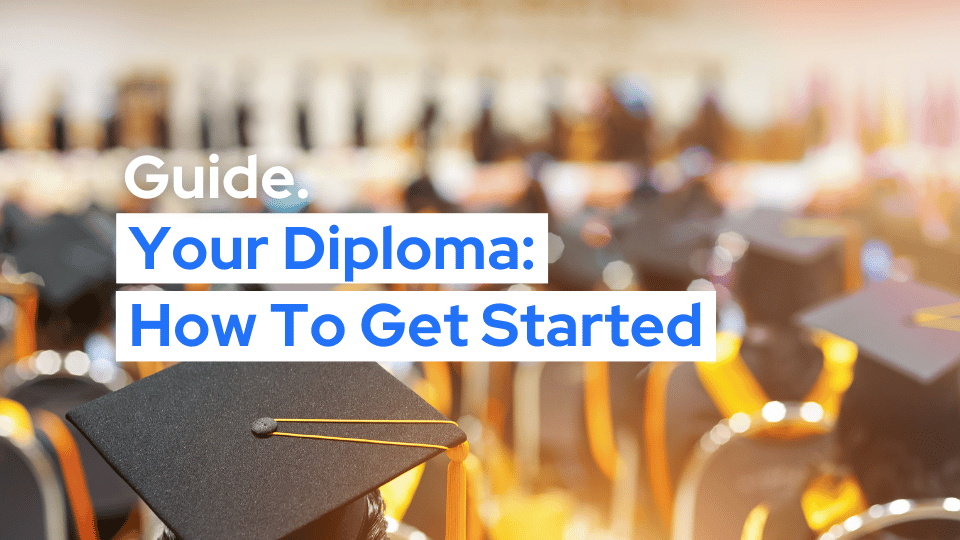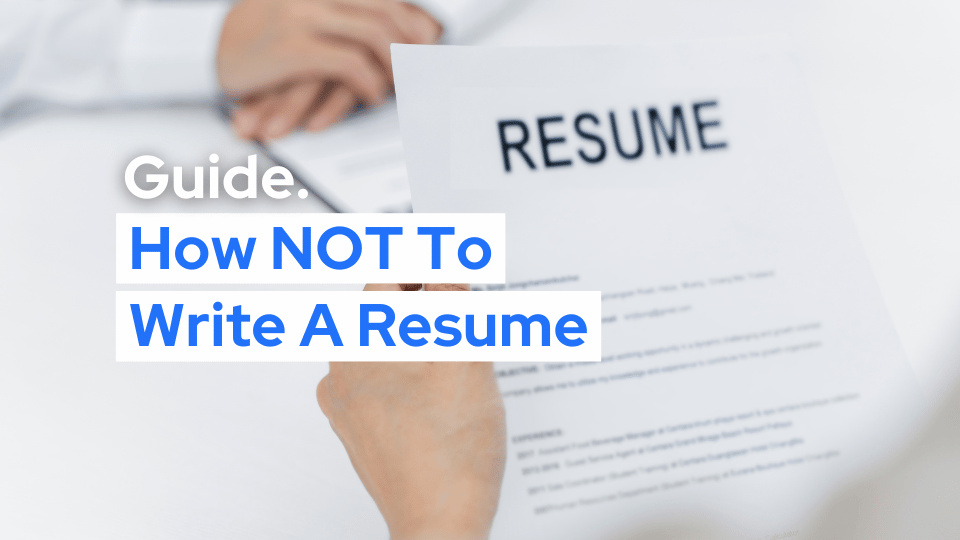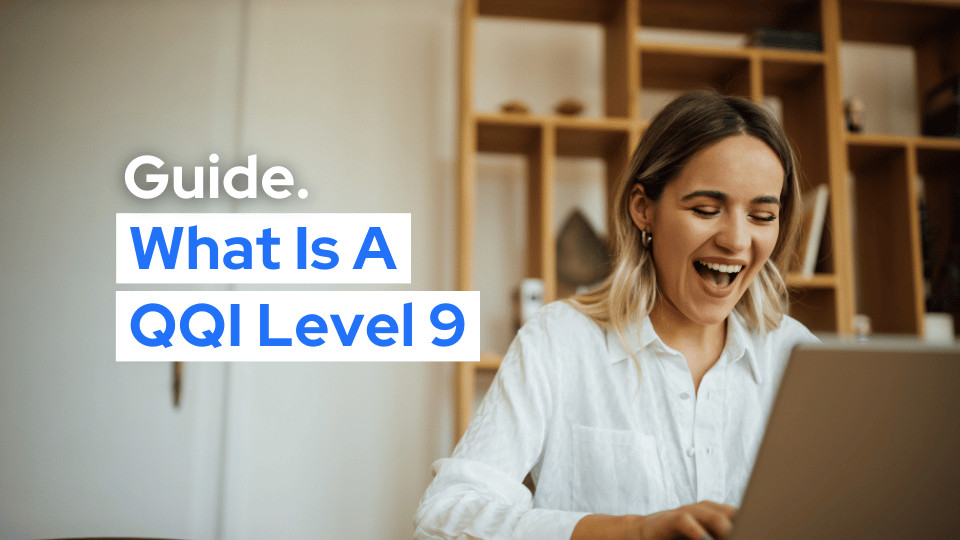
What is a Top-up Degree?
In terms of qualifications, accreditation and recognition, graduating with a regular degree or a top-up degree is exactly the same.
The difference between a top-up degree and a normal one is the time taken to complete it.
A standard Bachelor’s Degree programme may take 3 or more years to complete – however a top-up degree can be completed within 12 months. Essentially, with a top-up degree you can skip to the final year of the bachelor’s programme, but still graduate with the same degree.
That means that when you start a top-up programme, you’ll be starting alongside students who have already been in the course for the past couple of years. So you’ll cross the finish line alongside everyone else, but the starting point is different.
We know, it almost sounds too good to be true. So how exactly does it work? And why do so many world-class universities offer their own top-up degree programmes?
Undergraduate / Bachelor’s Level
To skip to the final year of a Bachelor’s Degree via a top-up programme, universities require qualifications equivalent to the first 2 years of university.
How to Convert Your Diploma into a Full Bachelor’s Degree in One Year
Elevating your MQF Level 5 Undergraduate Diploma to a full Bachelor’s degree in just one additional year is an excellent way to accelerate your academic progress and enhance your career opportunities. Here’s a streamlined, five-step guide to achieving this goal efficiently.
Step 1: Embrace Online Learning
Take advantage of the flexibility offered by online Undergraduate Diploma programs. This approach allows you to study from anywhere, fitting your academic pursuits around other life commitments.
Step 2: Complete Your Undergraduate Diploma
Understand that holding an MQF Level 5 Undergraduate Diploma, with 120 credits, makes you equivalent to having completed the first two years of university. This positions you perfectly for the next step in your academic journey. Dedicate yourself to completing your MQF Level 5 Undergraduate Diploma within 10-15 months. A structured study plan and commitment are key to successfully acquiring the diploma and preparing for the transition to a Bachelor’s degree.
Step 3: Choose Your Bachelor’s Top-Up Degree
Select a Bachelor’s Top-Up Degree program that aligns with the subject area of your Undergraduate Diploma. Opting for a relevant program ensures the smooth transition of your credits and a focused continuation of your studies.
Step 4: Transition to the Bachelor’s Top-Up Degree
With your diploma in hand, apply to your chosen Bachelor’s Top-Up Degree program. Given your diploma’s relevance and the online nature of many such programs, you should be well-prepared for this final year of study, leading to the full Bachelor’s degree.
In Conclusion
Transitioning from an MQF Level 5 Undergraduate Diploma to a Bachelor’s degree in just one additional year is a straightforward and effective way to advance your education and career prospects. By following these four steps, you can navigate the process smoothly, leveraging your diploma towards achieving a higher academic.
Examples of these Undergraduate programmes include –
- Diploma in Business Management
- Diploma in HR Management
- Diploma in IT & Computing
- Diploma in Accounting and Finance
- Diploma in Hospitality Management
With these qualifications in Malta, you’ll be eligible to apply for any bachelor’s top-up degree in a relevant subject. You can also apply for the Get Qualified Scheme in Malta both steps of the way (following completion of the Undergraduate Diploma (10 – 15 months) and then after completion of the Bachelor’s top-up degree (1 additional year).
Examples of these Top-Up programmes include –
BSc In Computing | EQF Level 6 (Top-Up)
BA In Business Management | EQF Level 6 (Top-Up)
BSc In Health and Care Management | EQF Level 6 (Top-Up)
BA In Accounting & Finance | EQF Level 6 (Top-Up)
BA In Human Resource Management | EQF Level 6 (Top-Up)
BA In Marketing | EQF Level 6 (Top-Up)
BA In Tourism | EQF Level 6 (Top-Up)
BA In International Hospitality Business Management | EQF Level 6 (Top-Up)
BSc In Business and Management | EQF Level 6 (Top-Up)
BSc In Computing and Information Technologies | EQF Level 6 (Top-Up)
BSc In Nursing Studies | EQF Level 6 (Top-Up)
This system makes the process a lot more affordable – a Bachelor’s Degree at a U.K university typically costs about €10,000 per year (see the British Council’s website here for more information). Therefore an Undergraduate Diploma followed by a top-up Degree results in savings of over €20,000 for the same qualification.
Postgraduate / Master’s Level
Top-up Degrees are also available at Master’s Level. Students may skip to the final few months of a master’s degree with a Master’s Top-up programme.
How to Convert Your Postgraduate Diploma into a Full Master’s Degree
Advancing your education from an MQF Level 7 Postgraduate Diploma to a Master’s Degree is the best way to enhance your academic credentials and broaden your career opportunities.
Step 1: Embrace Online Learning
Leverage the convenience and flexibility of online Postgraduate Diploma programs. This modern approach allows you to pursue your educational goals without having to compromise on your work or personal commitments. With the ability to study from anywhere, you can ensure that your path to a Master’s Degree fits seamlessly into your life.
Step 2: Complete Your Postgraduate Diploma
Owning an MQF Level 7 Postgraduate Diploma, which comes with 60 credits, signifies that you’re 2/3 of the way to a obtaining a Master’s Degree. This accreditation is crucial as it sets the stage for your advancement into a Master’s top-up program. Focus on successfully completing your Postgraduate Diploma, which requires a commitment to your studies and a well-organized study schedule. The completion of this diploma within its structured timeframe is essential for moving on to the next phase of your education.
Step 3: Choose Your Master’s Top-Up Degree
Identify a Master’s Top-Up Degree program that is closely related to the subject area of your Postgraduate Diploma. Selecting a program that aligns with your previous studies is critical for ensuring that your prior learning and credits are applicable. This strategic choice will facilitate a smoother transition into the Master’s curriculum and enhance the coherence of your academic and professional profile.
Step 4: Transition to the Master’s Top-Up Degree
With your Postgraduate Diploma secured, the next step is to apply for your chosen Master’s Top-Up Degree program. Given the specificity of your diploma and the online format of many Master’s programs, you are in an advantageous position to embark on this final segment of your academic journey. This last leg involves obtaining the additional 30 credits required to achieve a total of 90 credits, culminating in the awarding of a Master’s Degree. Prepare for this phase by planning your study time effectively and engaging deeply with your coursework and any research projects.
Conclusion
By following these steps, you can efficiently convert your MQF Level 7 Postgraduate Diploma into a full Master’s Degree. This progression not only signifies academic excellence but also opens up enhanced career prospects and opportunities for professional growth.
Examples of these Postgraduate pathway programmes include –
Through Elephant & Cross, students can acquire the minimum requirements for a Master’s Topup Degree on a flexible, self paced basis via the courses listed below:
- Postgraduate Diploma in Business Management
- Postgraduate Diploma in HR Management
-
Example Top-Up programme at Level 7 –
FAQ
What is the difference between a top up degree and a normal degree?
A top up degree and a standard degree are equivalent to each other in terms of accreditation and recognition. The difference is the time taken to complete it. A top-up degree enables students to skip to the final stage of the programme.
What are the requirements to start a top-up bachelor’s degree?
To skip to the final year of a Bachelor’s Degree via a top-up programme, students typically require an MQF Level 5 with 120 Credits.
What are the advantages of studying for a top-up degree?
Top-up Degrees can be completed in less time and are always more affordable. A 3 year Bachelor Degree programmes is often costly and therefore having the option to skip to the final year is very advantageous.
What does ‘top-up’ mean in degrees?
The term ‘top-up’ is used as the degree is building on already existing qualifications – so students top-up their Diploma into a full degree with some additional studies.
How long does a ‘top-up’ degree take?
A top up degree typically takes 1 additional year (but can extend to 2 years if studying on a more part time basis). However many online study options are self paced and can be completed on a more flexible basis.
Are top-up degrees available at Master’s level?
Yes – students may skip to the final few months of a master’s degree with a Master’s top-up programme. To start a Master’s top-up programme, students are required to have an MQF Level 7 Postgraduate Diploma with 60 credits. Through a top-up programme, students will acquire the remaining 30 credits for a complete Master’s Degree (90 Credits total).

 Malta
Malta
 Ireland
Ireland
 Global
Global


